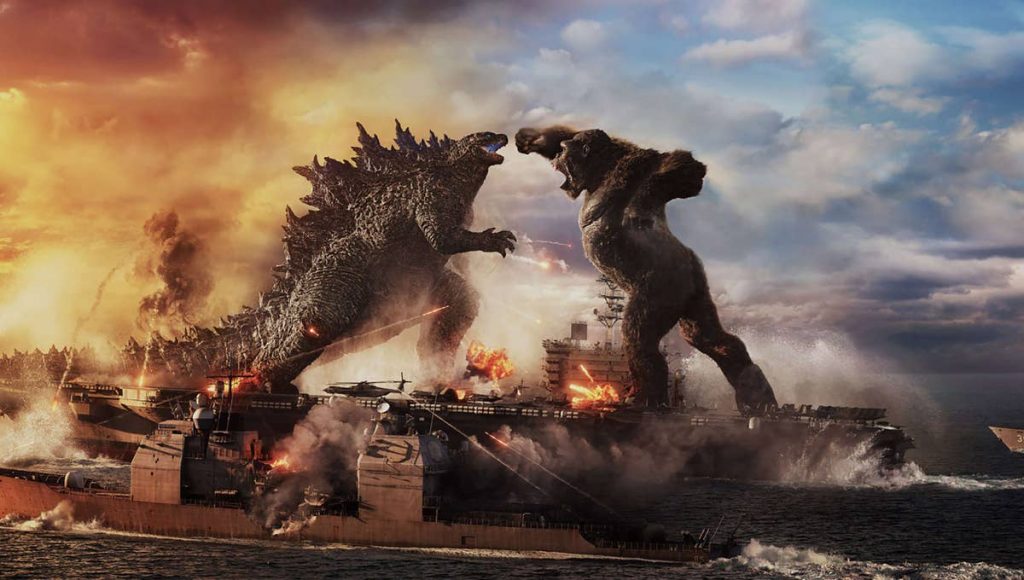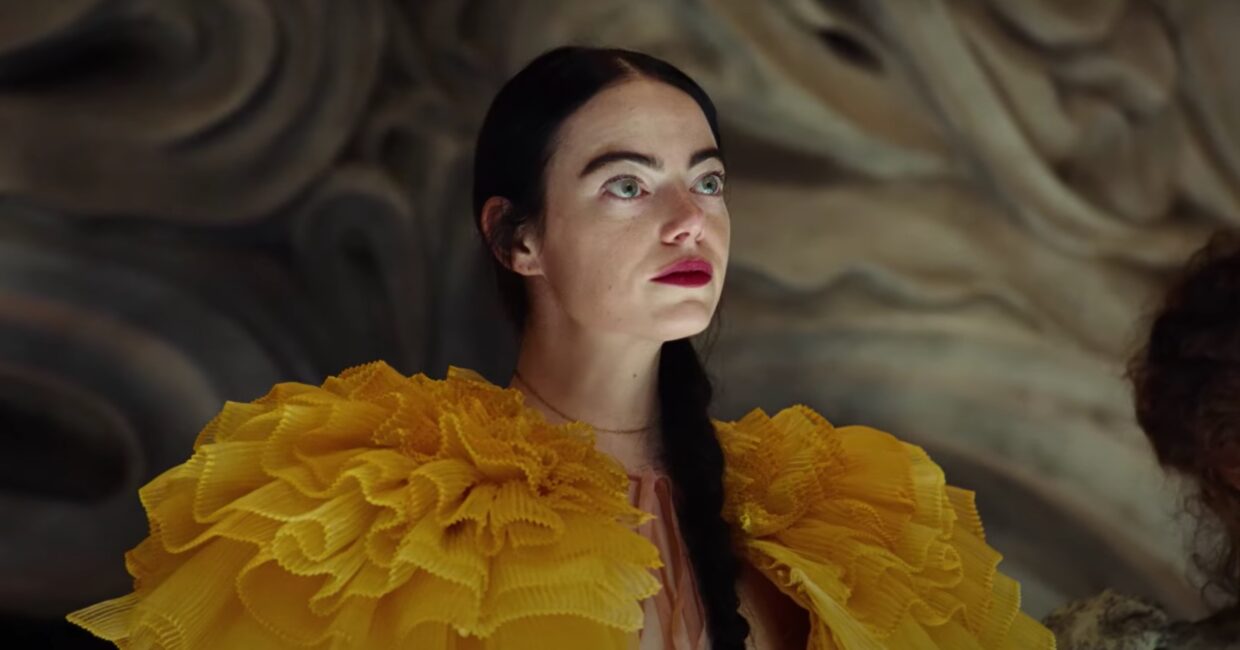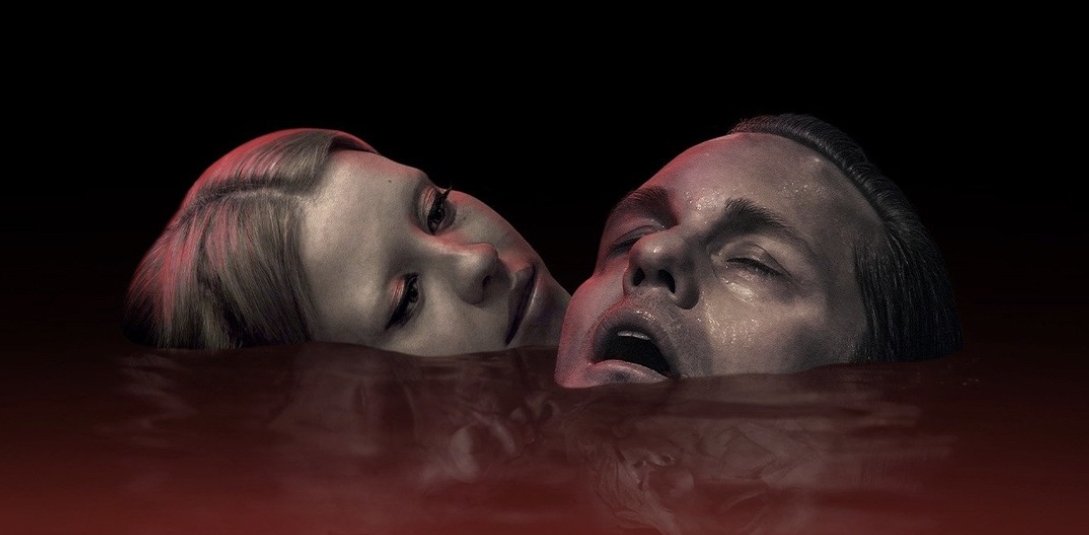
The Academy Awards are soon approaching. The nominations for Best Picture included the following:
The Father, a drama about Anthony Hopkins losing his memory and his family dealing with the fallout.
Judas and the Black Messiah, a historical biopic on the racial and violent tensions between the Black Panthers and the FBI.
Mank, a retro Hollywood biopic on the screenwriter of Citizen Kane.
Minari, a drama about an immigrant Korean family trying to make their farmland work in 1980s America.
Nomadland, a contemplative picture on the nature of American work and its decaying ideals amid the failures of capitalism.
Promising Young Woman, an off-beat yet darkly depressing revenge thriller involving rape,
Sound of Metal, the story of a drummer learning to live with hearing loss.
And, finally, The Trial of the Chicago 7, a courtroom drama involving the protest of the 1968 Democratic National Convention.
The expected and tired takes followed that repeat every year about the nominations. The commentary usually involves people saying they’ve never heard of these films and if they have seen any of them they remark that they’re all boring and crap.
Bill Maher recently gave his old man yells at cloud take. He spoke about how all the nominations are depressing, that Hollywood no longer has any escapism if these are the best movies chosen for the Academy Awards.
First off, well, that’s the Oscars! This isn’t the MTV Movie Awards where they select the Best Fight or the Golden Screen Award where whichever film makes the most money wins the award.

The Academy Awards have always been about choosing prestige pictures that always seem serious and sophisticated in the subject matter. It’s why the term Oscar Bait is still applied to melodramatic biopics with big names and operatic performances, which are always present in some form every year. It’s also entirely dependent on the campaigns for the films and how willing a studio is to spend money on advertising and pitching their films for awards consideration.
There are some instances where a few popular genre films rise to the nomination level of Best Picture, as with Mad Max: Fury Road and Black Panther, but these occurrences are somewhat rare.
I’m not really interested in going down this road of having to explain the mixed reception and dubious worth of the Academy Awards. I really just want to talk about addressing this year’s nominations and why they’re considered depressing and not escapism.
The nominations have sad elements for sure but they’re not entirely tragic, depressing films.
Nomadland, for example, is more of a meditation on what it means to seek worth and purpose as a country fails its workforce. It features some stunning shots of numerous American landscapes from director Chloe Zhao. There’s a subtly wondrous performance by Frances McDormand as the central character of Fern. Fern travels around the country seeking employment but also favoring such a lifestyle that seems to bring her purpose. She is offered several chances to stay with people in their homes instead of living in her van for the rest of her life, but she favors the nomadic lifestyle instead. It seems like she does so less out of maintaining some sense of dignity and independence and more out of trying to find some meaning in the twilight years of her life. There’s closure and contentment present throughout.
Minari, from director Lee Isaac Chung, finds a Korean immigrant family living in rural Arkansas. The patriarch of the family, Jacob Yi, is hoping to make his own way in the world but his wife Monica is worried that they are too far away from a hospital would be dangerous for their son David who has heart problems. Their life is a rollercoaster of triumphs and tragedies as they struggle to become integrated with their community while retaining their Korean roots.
Maher mentions that the climax of the film is that the family’s grandmother has dementia and accidentally burns their crops but this moment is sandwiched between two moments of emotional uplifting, where David receives good news about the developments of his heart and the farming is able to continue with planting near a stream. It’s not so much a sad film as it is a bittersweet film of family problems, cultural issues, and the hardships of living off the land.
Sound of Metal starts with a sad premise but slowly builds up a story of acceptance. Riz Ahmed plays Ruben Stone, a drummer who finds himself losing his hearing and relying on a deaf community for help. He learns to become comfortable with sign language and interacting with others who share his issues. He also tries to attain surgery that will restore his hearing but the results are tinny and uncomfortable. By the end of the film, he learns to become more content with the silence and find a way to keep on living. Again, it’s a bittersweet movie.
The rest of the films more or less fit into the more simplistic categories. The Father features a great performance by Anthony Hopkins but is far more tragic. Promising Young Woman and Judas and the Black Messiah are more infuriating movies centered on the social ills of the world, aimed to provoke the audience. As for Mank and The Trial of the Chicago 7, those are both straight-up Oscar bait.
Maher’s rant mentioned that audiences had been through a tough year and could use some films that were escapism rather than be reminded of the dire state of the world.
Escapism is defined as the mental diversion from unpleasant or boring aspects of daily life. There is no unanimous consensus, however, on what constitutes escapism.
In the case of Maher’s ramblings, he seems to refer to films that are not sad or infuriating for reflecting the real world, which is kinda funny that he’s looking to the Oscars of all places to be some representation of escapism.
But escapism is also extremely relative and doesn’t always apply to films that have the most upbeat tones or seemingly apolitical staging. Someone might remark that Sonic The Hedgehog is escapism as it’s a fantasy adventure that doesn’t remind them so much of the real world. There’s no overt politics, real-world issues, or deep social themes present. There are, however, protruding product placements of Zillow, Toyota, and The Olive Garden. For some audiences, they can divorce themselves from these commercials in their film but others may still be reminded of the encroaching commercialization by the mere mentions. Those distracted by this element will not be able to escape.
Escapism is not some easily agreed-upon definition because we’re not all the same and different story elements can remind us of the real world.
But if we’re going to define escapism in terms of films that don’t constantly remind you of the real world in terms of current events, there were still plenty of escapist films from last year.
Tenet is a time-travel thriller set in the modern-day with globetrotting stunts and slickly portrayed heist operations.
Wolfwalkers is an animated folklore tale taking place in the mythical past of Ireland, telling the story of two girls connecting when they are able to transform into wolves.
Wonder Woman 1984 is an action picture set in the 1980s that involves Amazon warriors, magic wishing stones, and a woman who transformers into a cheetah.
None of these films are biographies nor do they carry reflective elements that will remind audiences of the modern issues regarding the Covid-19 pandemic, racial tensions, or rampant political corruption, at least not overtly.
But I’m sure upon making this statement, someone will jump out of their seat to say, “Well, hang on, I want escapism but I don’t want to watch special-effects heavy action movies, cartoons, or superhero movies.” Okay, that’s fine, but if you go this route then you’re not complaining that there’s no escapism, only that there’s not any good escapism. And, yes, there is a difference.
Escapism isn’t gone and people are still seeking it out.
A lot of people recently went to the theater to go see Godzilla vs. Kong, a big, dumb, exciting giant monster movie showdown that is absolutely escapism, at least in my book. It’s one of the highest-grossing films of the year thus far and it’s a reminder of how there is an audience who still wants to watch movies with fantastical escapism. You may not like the film but using it as an excuse that there is no escapism entertainment anymore is as idiotic a statement as saying there are no music videos anymore because all music videos are bad.
The thing about escapism, however, is that it doesn’t have to completely ignore the world or attempt to remain as neutral entertainment. Stan Lee once wrote a great statement on this in a comic book column where he stated:
“From time to time we receive letters from readers who wonder why there’s so much moralizing in our mags. They take great pains to point out that comics are supposed to be escapist reading and nothing more. But somehow, I can’t see it that way. It seems to me that a story without a message, however subliminal, is like a man without a soul. In fact, even the most escapist literature of all – old-time fairy tales and heroic legends – contained moral and philosophical points of view. At every college campus where I may speak, there’s as much discussion of war and peace, civil rights, and the so-called youth rebellion as there is of our Marvel mags per se. None of us lives in a vacuum – none of us untouched by the everyday events about us – events which shape our stories just as much as they shape our lives. Sure, our tales can be called escapist – but just because something’s for fun, doesn’t meant we have to blanket our brains while we read it!”
Stan Lee
Not all escapism needs to be popcorn blockbusters or fun comedies to be considered as such. Escapism can be as simple as just stepping out of your own shoes and into someone else’s life. I was completely invested in the family struggles of Minari and the meditative Nomadland that I didn’t want to hang myself as Maher seems to think audiences would react.
There’s plenty of escapist films and using the Oscars as an example to complain about how Hollywood doesn’t make these films anymore is to be dumb about this issue, pretending that the Academy Awards were never about prestige or Oscar bait before.
You can be critical of what films are being produced but to make blanket statements about there being no escapist films simply because studios are not making highly specific content that you personally deem escapism is to ignore what escapism is and which films appeal to which awards shows.
Making the generalist statement about escapist movies being dead after looking at Oscar nominations doesn’t make you sound insightful. It makes you sound like Bill Maher.

 “My Spy: The Eternal City” Review
“My Spy: The Eternal City” Review  “Deadpool & Wolverine” Review
“Deadpool & Wolverine” Review  “The Boys: Season Four” Review
“The Boys: Season Four” Review  “The American Society of Magical Negroes” Review
“The American Society of Magical Negroes” Review  “Twisters” Review
“Twisters” Review  “Sausage Party: Foodtopia” Review
“Sausage Party: Foodtopia” Review  “Robot Dreams” Review
“Robot Dreams” Review  “Godzilla x Kong: The New Empire” Review
“Godzilla x Kong: The New Empire” Review 



